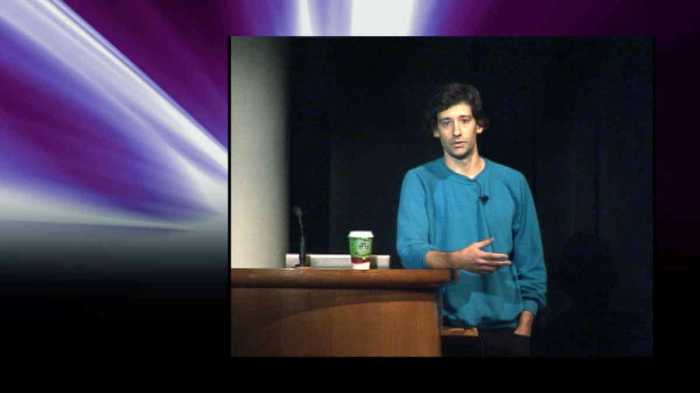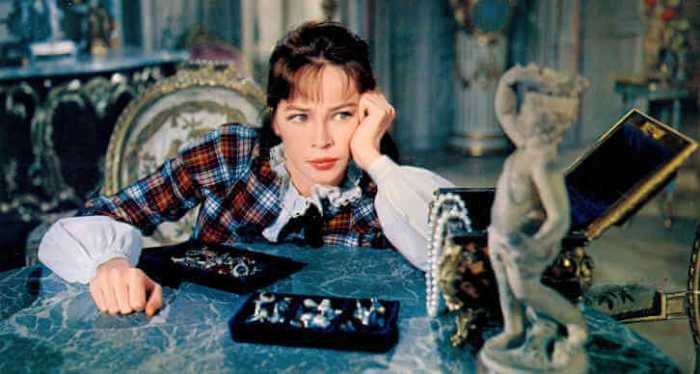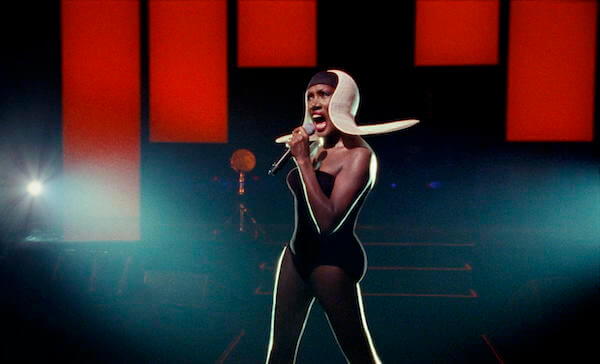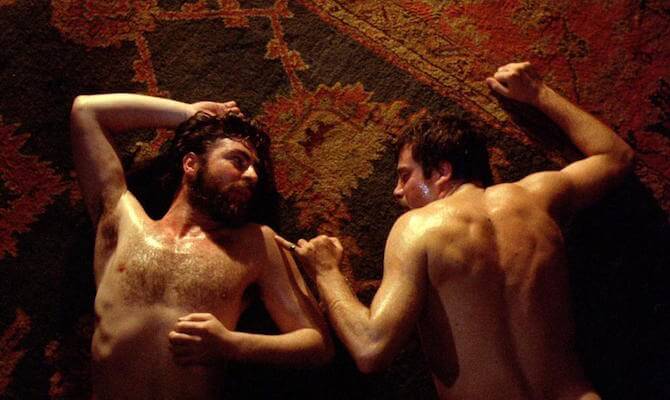In the early 1990s, Manhattan’s Chinatown had three movie theaters showing Hong Kong films. Now they’re all gone, and there’s not even a DVD store left in the neighborhood. It’s fitting that Hong Kong director Johnnie To’s “Office” is getting a week-long run in the 3D version in which it was originally meant to be seen –– the 2D version played briefly at the AMC Empire 25 last fall –– in the Metrograph, a new theater at the border of the Lower East Side and Chinatown. The film seems to have found a cult audience in the US; while some of To’s gangster films have played to small but enthusiastic American crowds, his non-genre work has largely been ignored here until now. Based on a stage musical written by Sylvia Chang, who adapted her own play, acts in the film, and co-produced it, it takes a radical approach to turning theater into cinema. Imagine a cross between Terry Gilliam’s “Brazil” and Jacques Tati’s “Playtime.”
“Office” begins before the 2008 fall of Lehman Brothers. Trading company Jones & Sunn awaits its IPO. Lee Xiang (Wang Ziyi) –– “Lee for Ang Lee, Xiang for dream” –– has just begun his probationary period with the company, which seems full of secrets. He starts working with Kat (Lang Yueting), who acts mysteriously. CEO Winnie Chang (Chang) is sleeping with its chairman, Ho Chung-ping (Chow Yun-fat), whose wife is comatose. Executive David Wang (Eason Chan) plays fast and loose with the company’s accounting.
The venal businessman has become an archetypal character for our times –– and one to argue about. “American Psycho” scumbag Patrick Bateman might be its epitome. No other version has gone as far as him; insider trading isn’t the moral equivalent of murder. Most of the controversy over Martin Scorsese’s “The Wolf of Wall Street” centered over whether it glamorized its anti-hero, fraudster Jordan Belfort. Even the aspirational reality TV world of CNBC’s “Shark Tank” offers a real-life villain in Canadian businessman Kevin O’Leary. David is the equivalent in “Office,” but it’s a mark of this film’s humanism that he’s treated far more kindly by Chang and To than any of the people, real or fictional, that I’ve just named.
Pre-recession office workers are ethically compromised and mostly alone
The opening of “Office” shows people scrambling to get onto the subway, an experience most New Yorkers can relate to. Time hangs heavy over this world; a huge clock decked out with Roman numerals is visible in many scenes. Most of the characters don’t seem to have a home life. Men are almost never seen wearing casual clothes.
While the songs of “Office” make an impression, something got lost along the way from Cantonese lyrics to English subtitles. The vocabulary and syntax are occasionally tortured. For a musical, the tunes are definitely the weakest element of “Office.”
The set –– created by connected plastic pipes, some of them neon or fluorescent lights –– is the film’s biggest star. There are no walls in this film. Elevators and spiral staircases allow people to climb the corporate ladder, but one elevator is set aside for the exclusive use of CEOs, which brought to mind the “executive washroom” jokes in Frank Tashlin’s “Will Success Spoil Rock Hunter?” The 3D is used subtly, as a way of immersing the audience in the world of “Office.” To never sends arrows flying off the screen.
“Office” isn’t a radical critique of capitalism, but it gets its digs in nevertheless. To has often used the crime film as a way of approaching the economic ups and downs of Hong Kong, as in “Election,” its sequel “Triad Election,” and “Life Without Principle.” In the final third of “Office,” the recession’s effects are felt on Jones & Sunn, and that leads to unethical behavior on the part of several characters. In the end, their secrets are revealed. It’s a credit to Eason Chan’s performance that David seems more pathetic than sleazy.
The songs also help, opening a window onto the characters’ emotions. Early on, they set the stage for the hectic life at Jones & Sunn, but by the halfway mark, they allow the characters to express a vulnerability for which open dialogue doesn’t have room. The saddest thing about corporate culture, as shown in “Office,” may be the way it forces most of this film’s characters to speak from behind a mask. No one in the film is gay, but they’re in the closet nevertheless.
OFFICE | Directed by Johnnie To | China Lion | In Cantonese with English subtitles | Opens March 25 | The Metrograph, 7 Ludlow St. at Canal St.| metrograph.com



































